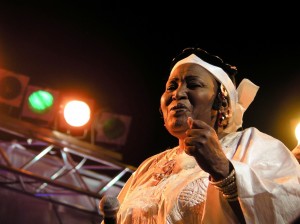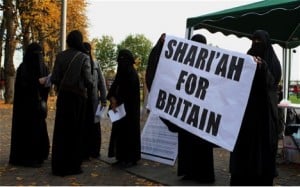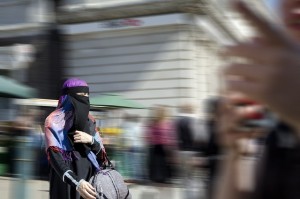Mali is a country well known for its strong musical traditions. In a country where music is viewed as part of a cultural heritage, it is especially used as a means through which history is recorded. Music is considered to be Mali’s “greatest and most important export product”. It is also a tool of resistance. While most of Mali’s popular musicians have been from the southern part of the country, northern Mali holds up as its own. A few of Mali’s most renowned musicians are from the North, and this region is also home to the famous Festival au Desert (currently “in exile”). Music has been banned in the parts of Northern Mali which are currently under the rule of religious extremists.
Earlier this year, in March, a military coup took place in Mali. And although the details were at first confusing, it seems Tuareg secessionists, MNLA (National Movement for the Liberation of Azawad) used the opportunity to make their move and form their long-sought-after separate and independent state, Azawad. At the same time, other groups rose in the turmoil, including the so-called Al Qaeda in the Islamic Maghreb and a Tuareg splinter hardline Islamic group Ansar Dine who aim to implement a strict code of Sharia in Azawad/Northern Mali. Recently, Ansar Dine, with the support of Al Qaeda, have subdued the Tuareg rebels and secessionists who sought a secular state.

In the bid to create a Sharia-compliant state, along with a strict dress code on women and a ban on cigarettes, music is now banned from the radio. Taking this one step further, playing music in Timbuktu may lead to lashing or prison time, with MP3s and cassette players being seized and destroyed. Hardliners from Ansar Dine have announced that any form of music is against Islam, including ringtones. Musicians from the North have fled South, usually to the Malian capital Bamako but sometimes to other towns, or even neighbouring countries.
One such musician is Khaira Arby, among the most celebrated musicians from Timbuktu, who has been forced to flee her home to Bamako. People from Ansar Dine are said to have broken into Arby’s house and destroyed her instruments. They threatened to cut her tongue out because they consider her voice to be a threat to Islam. Ironically, although Arby sings about love, marriage, peace, history and the struggles of living in the Sahara desert, several songs in Arby’s repertoire are very Islamic in theme and content. For example, in her song “Goumou” from the album Timbuktu Tarab she praises Prophet Muhammad and Allah. Perhaps Arby is a threat also because she sings in advocacy of women’s rights; she has also sung against the practice of female genital mutilation. Another singer who has fled Timbuktu, Aminata Wassidie, Traore insists that “Islamists do not want anyone to sing”.
Music plays a very big role in how Islam is practised in West Africa, and several popular forms of music today started out from genres that specialised in Muslim praise songs. There are long lists of Muslim women who have sung songs that praise Allah, the Prophet Muhammad and call to be observant in upholding the worship Allah for decades. Women have played large roles in using music as a form of expression, not limited to entertainment and public discourse. This is not unique to Mali, as in Nigeria for example, the Yoruba waka style of music sung during festivities such as Ramadan were largely performed by women. Arby’s music is rooted in the West African Muslim tradition that is dying out as stricter interpretations of what is “true” Islam take hold.












